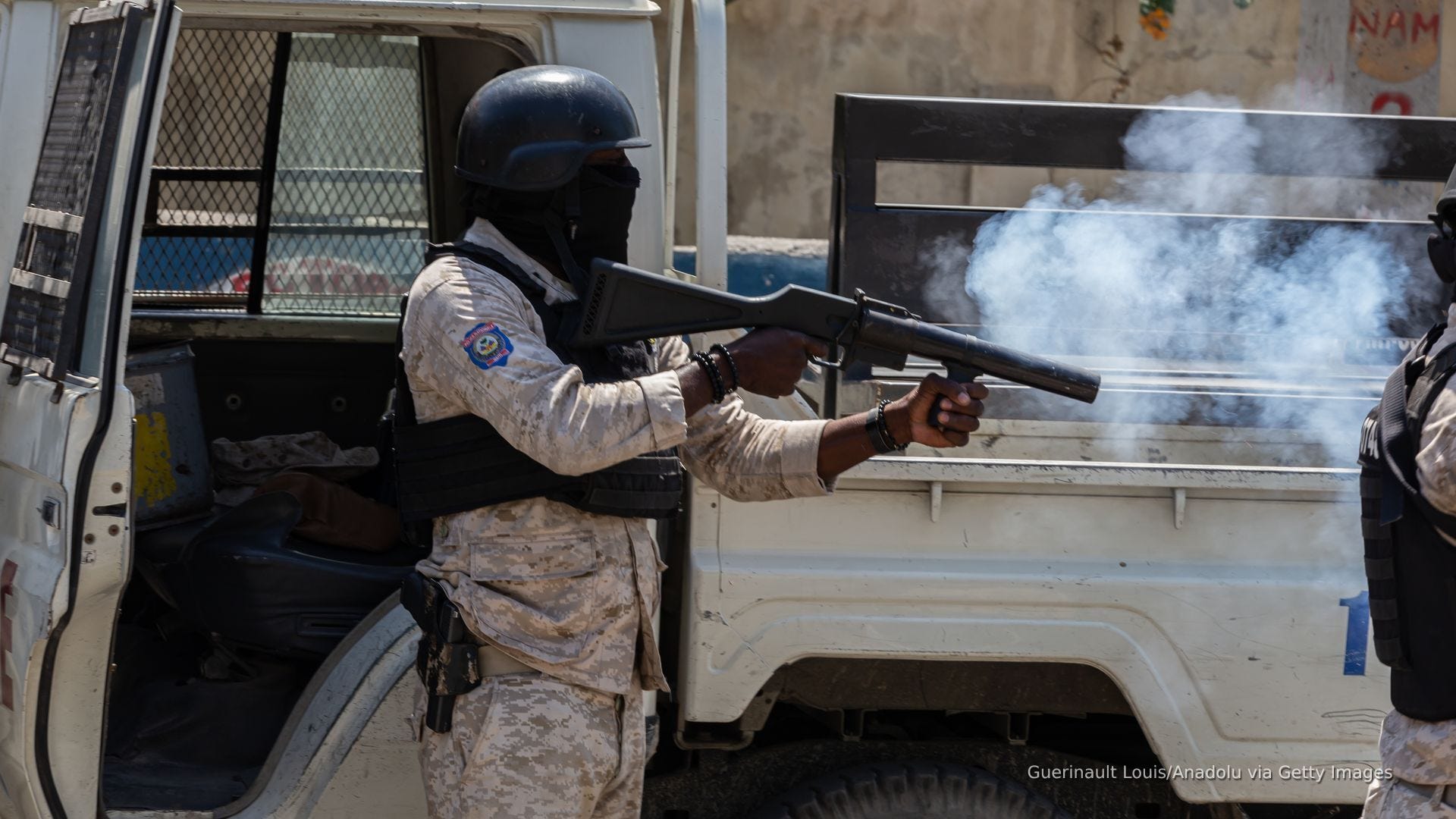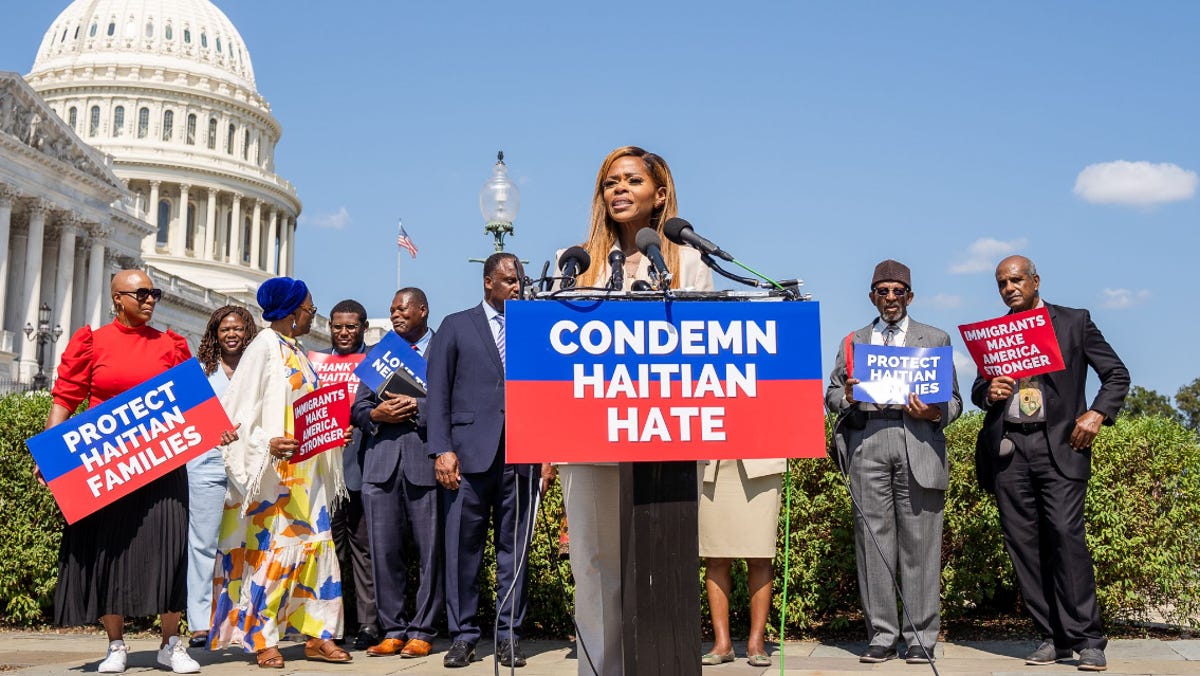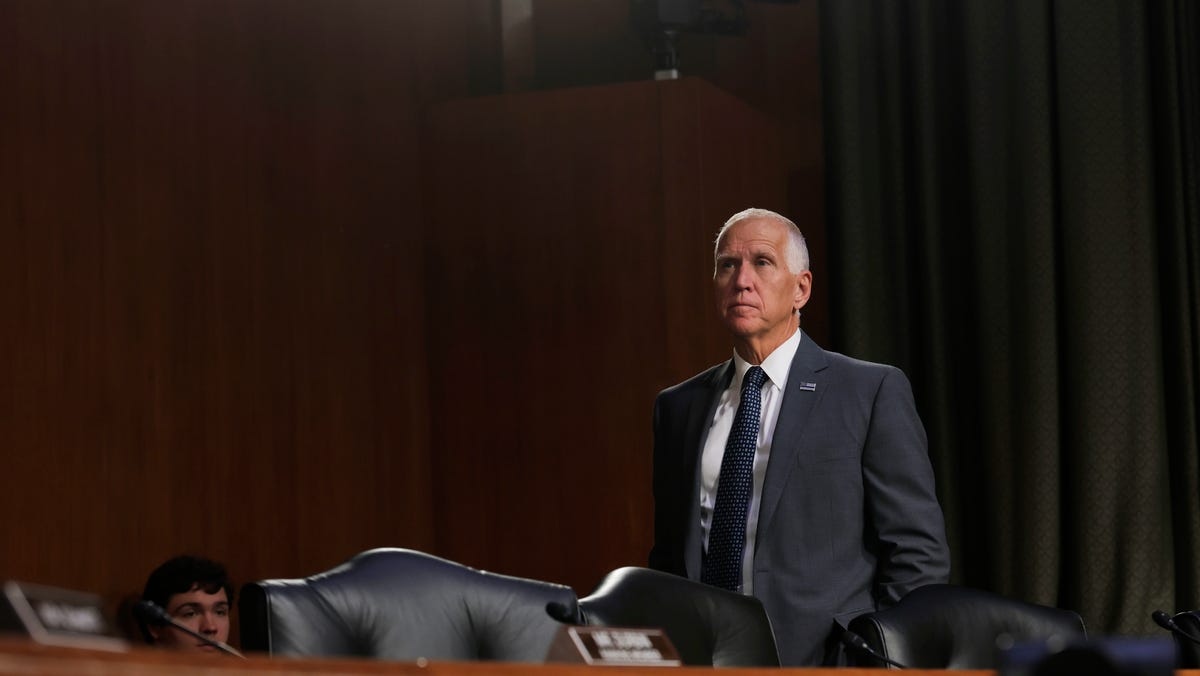For the children of Haiti – and for children everywhere – we must act now. Their futures, and our collective humanity, depend on it.

UN warns of ‘severe human rights abuses’ in Haiti, illegal flow of weapons
The U.N. is warning of “severe human rights abuses” in Haiti and blames a rise in violence on the flow of illegal weapons into the nation.
Straight Arrow News
The images emerging from California – raids by Immigration and Customs Enforcement spiraling into chaos, immigrant families fleeing their homes and National Guard troops confronting peaceful protesters – are chilling reminders of how far we’ve strayed from the democratic values we claim to uphold. This is not the America I know. This is not the America we aspire to be.
We are a nation built on justice, compassion and the unwavering belief that every person deserves dignity and respect. What’s happening in Los Angeles betrays those principles.
Deploying more than 4,000 National Guard troops and 700 Marines – without a formal request from state and Los Angeles officials – is a dangerous overreach. It risks escalating tensions and suppressing the constitutional right to protest. What we need is leadership that listens – not one that responds to fear with force.
In South Florida, immigration isn’t some abstract debate. It’s personal. Our region is home to vibrant Haitian, Jamaican, Venezuelan, Cuban and Central American communities. These are our nurses, pastors, teachers, small business owners and caregivers. They keep our economy strong and our neighborhoods thriving.
That’s why the renewed Trump-era travel restriction targeting countries like Haiti, Venezuela and Cuba feels like more than bad policy – it feels like a direct attack on the people who make South Florida strong.
Trump’s travel ban endangers Haitian families
As the proud daughter of Haitian immigrants, I’ve seen both the strength of our people and the pain caused by unjust policies. The Trump-era travel restriction is a cruel attack on Haitian families – ripping children from their parents, delaying dreams and denying basic opportunities for safety, education and health care.
This ban has blocked countless children from reuniting with loved ones who were already approved to bring them to the United States. It’s not just policy – it’s personal. It’s a direct blow to Haiti’s future and a moral failure.
Haiti’s children deserve more than borders that separate them from their families – they deserve hope, dignity and a future filled with opportunity. They deserve to dream without limitations, to grow up without fear ‒ without the shadow of unjust policies keeping them apart. No child should ever have to wonder when – or if – they’ll see their parents again.
We must stand with Haitian families and fight for a future where children are free to thrive – unconfined by political barriers and uplifted by the promise of unity and justice.
For the children of Haiti – and for children everywhere – we must act now. Their futures, and our collective humanity, depend on it.
What’s worse, there is no credible evidence that Haitians or others named in the ban pose a national security threat. These decisions don’t make us safer. They separate families, destabilize communities and undermine our commitment to fairness and inclusion.
To make matters worse, Temporary Protected Status (TPS) has been revoked for countries like Haiti without the required assessment that conditions have improved. At the same time, visa access is being restricted under claims of national security. These contradictory actions reveal the cruel intent behind these policies.
Haitians are a major part of South Florida’s economy
According to the American Immigration Council, immigrants in Florida contribute about $100 billion to our state’s economy each year.
Haitian Americans are the backbone of health care, hospitality and construction. They open businesses, pay taxes and raise the next generation of Floridians. That’s not charity – it’s economic common sense.
But we must also confront how our immigration system treats people – especially in federal custody.
After visiting the Broward Transitional Center in Pompano Beach following the tragic death in April of Marie Ange Blaise, I was alarmed. Medical staffing was inadequate. Detainees reported delays in care. And staff met us with hostility – not transparency. If taxpayer-funded facilities aren’t meeting basic standards of care, we must ask why – and we must demand better.
Finally, we must oppose efforts in the budget reconciliation language to impose a 3.5% tax on remittances – money immigrants send to support loved ones abroad. This is not just wrong – it’s illegal. It amounts to double taxation, punishing people for caring for their families. First, they cut foreign aid. Now they’re taxing compassion. What’s next?
Here in South Florida, we know how to build bridges across cultures. We value decency and dialogue. We believe immigration policy can reflect both national security and human dignity.
That means rejecting discriminatory travel restrictions. It means restoring transparency and oversight in detention centers. And it means investing in a fair, humane immigration system.
I remain committed to fighting for policies that reflect our values and protect the communities that make South Florida – and America – strong.
Immigrants help build this country every day. Our politics should honor that truth.
Congresswoman Sheila Cherfilus-McCormick represents Florida’s 20th Congressional District. She is a member of the House Foreign Affairs Committee and cochair of the Haiti Caucus. This column originally published in the Palm Beach Post.








